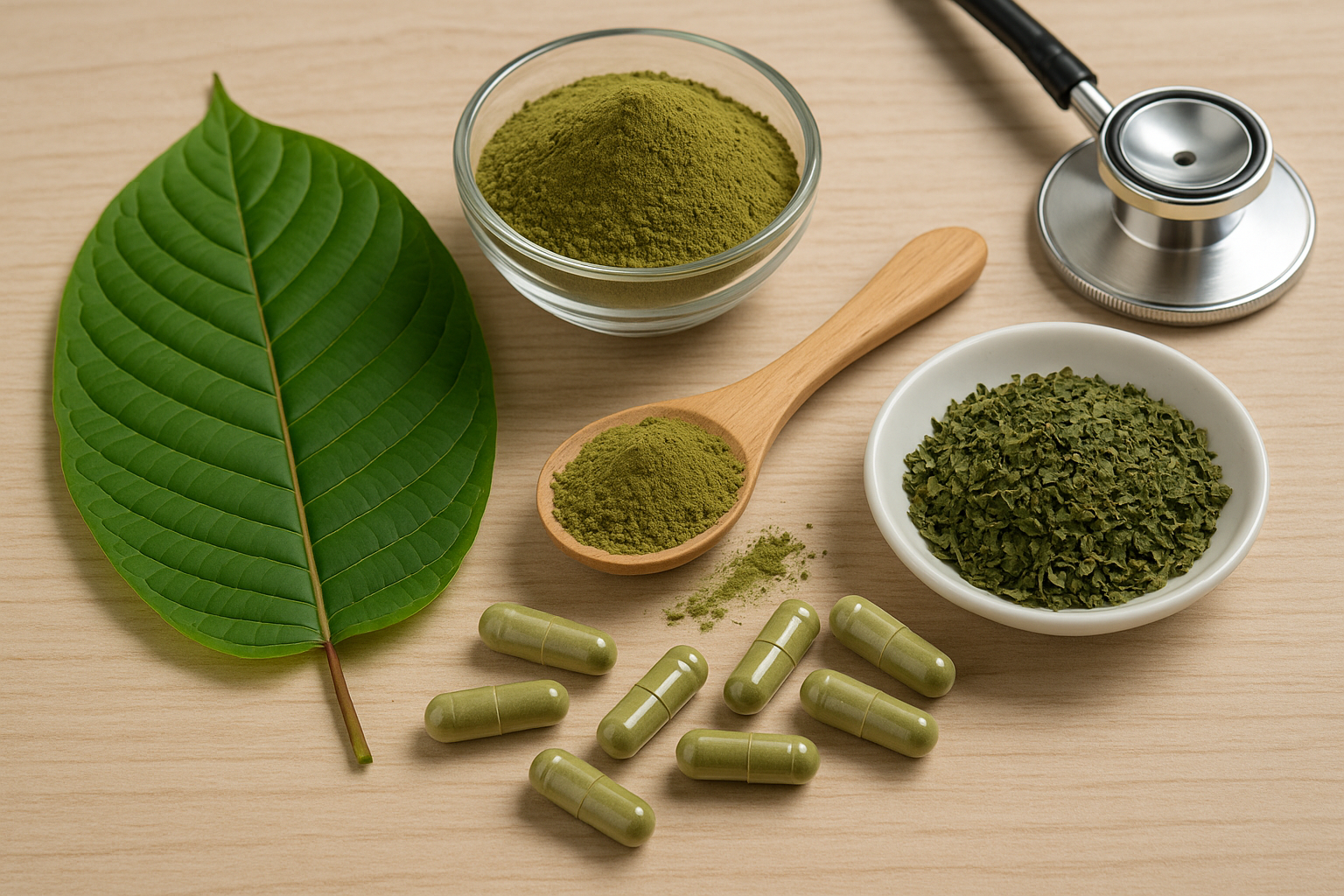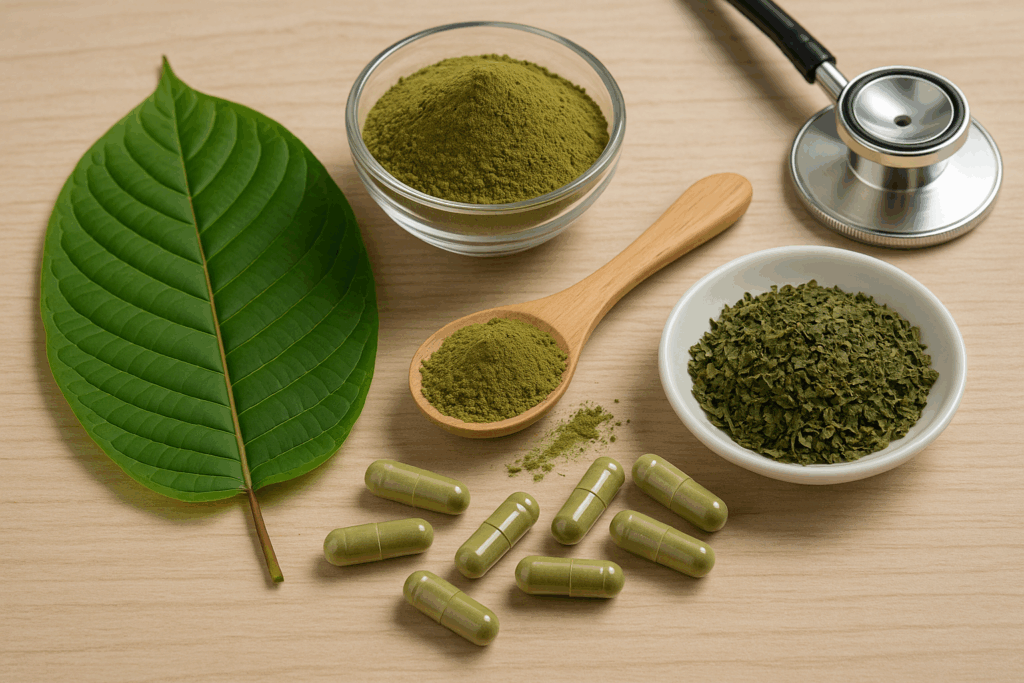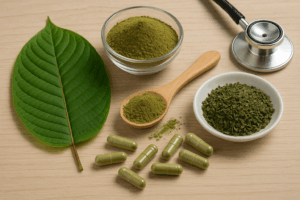Kratom is a herbal product made from the leaves of Mitragyna speciosa, a tree native to Southeast Asia. It’s sold as powders, capsules, extracts, or teas. People often use it for pain, mood, or energy — and some try to use it to self-treat opioid withdrawal.
While it’s marketed as “natural” and “safe,” kratom contains psychoactive alkaloids that act on the brain’s opioid receptors. The most potent of these is 7-hydroxymitragynine (7-OH).
________________________________________
Why is 7-OH a Concern?
• Potent opioid activity – 7-OH is significantly more potent than morphine at the brain’s mu-opioid receptors.
• Addiction potential – Regular use can lead to dependence and withdrawal similar to prescription opioids.
• Variable potency – Concentrations of 7-OH in products are unregulated and unpredictable, increasing overdose risk.
• Respiratory depression risk – At high doses or when mixed with other sedating substances (like alcohol, benzodiazepines, or opioids), 7-OH can slow or stop breathing.
• Liver toxicity – Kratom use has been linked to cases of acute hepatitis and liver failure.
• Contamination – Many kratom products are contaminated with heavy metals, bacteria, or adulterated with other drugs.
________________________________________
Withdrawal and Dependence
• Withdrawal symptoms may include anxiety, insomnia, muscle aches, sweating, irritability, and cravings.
• Severity increases with higher doses and longer use.
• Some individuals require medical treatment to safely stop.
________________________________________
Legal and Safety Issues
• Kratom is not FDA-approved for any medical use.
• Several states and countries have banned it.
• Because it is unregulated, product labels often do not reflect actual contents.
________________________________________
If You or a Loved One is Using Kratom
• Do not stop suddenly without guidance if you have been using regularly — withdrawal can be intense.
• Avoid combining kratom with other sedatives or alcohol.
• Seek medical advice if you experience jaundice, dark urine, confusion, difficulty breathing, or severe nausea/vomiting.
Are you or a loved one suffering from opioid dependency due to substance use or chronic pain? Please contact us today.





